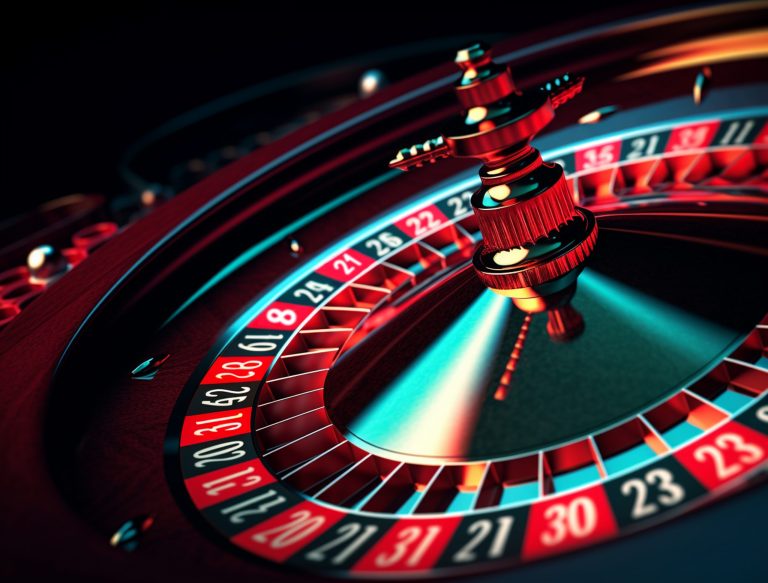The theory of probability in online casinos always sparks debates. Some consider it a tool for strategies, while others see it as a useless abstraction in the face of fortune. In practice, numbers help assess risk and manage bets, but they do not negate the mathematical advantage of the casino. The mathematics of gambling explains how each game works, why wins are rare, and what lies behind the promised “RTP 96%”.
The Theory of Probability in Online Casinos: Numbers vs. Intuition
Every online casino builds games on strict algorithms. The theory of probability in online casinos determines the frequency of wins and forms the house edge – the percentage advantage the establishment has over the player. If a slot has an RTP of 96%, every 100 hypothetical units returned over the long run give back 96, while 4 remain with the casino. This indicator works only over a long distance, not in a single spin.
Roulette, blackjack, and slots use different mathematical models. In European roulette, there are 37 pockets, one of which is zero. Betting on red returns 48.65% of the win, with the remaining percentage forming a house edge of about 2.7%. The American version with double zero increases the advantage to 5.26%. Blackjack, with basic strategy, reduces the casino’s edge to 0.5-1%, but requires precise decisions at every move. Slots depend on RTP and volatility – parameters that determine the frequency and size of payouts.
Can You Beat an Online Casino Using Probability Theory?
The mathematics of gambling allows for planning bets and reducing losses, but it does not provide a way to consistently beat the casino. The theory in online casinos shows that the house edge always remains positive for the operator. Even with a perfect blackjack strategy, the edge is minimal but not eliminated. In roulette and slots, algorithms eliminate any long-term player advantage.
Some professionals use distance for analysis. A long distance smooths out randomness and confirms the stated RTP. Short-term series of wins or losses only reflect statistical variance, not the ability to disrupt the balance.
How to Calculate the Probability of Winning in Slots
The mechanics of slots in online casinos become clear when viewed through the lens of probability theory. Each reel contains a certain number of symbols and combinations.
For example, a slot with five reels and twenty symbols on each has 20⁵ possible combinations – 3,200,000 variations. The RNG (Random Number Generator) algorithm selects them randomly, while the RTP and volatility of slots show how many bets are returned to players and how often significant wins occur.
High volatility implies rare but large payouts, while low volatility means frequent but modest ones. An RTP of 97% does not guarantee instant returns – it is formed over millions of spins. In the short term, the result is entirely dependent on chance.
How to Calculate the Probability of Winning in Roulette
European roulette with a single zero gives even/odd bets a 48.65% chance. The American version reduces this to 47.37% due to the double zero. The theory of probability in online casinos helps assess the risk of a specific bet.
For instance, a bet on a single number has a 1 in 37 chance (2.7%). With a payout of 35 to 1, the casino’s mathematical advantage remains, as a fair payout would be 36 to 1.
Complex betting systems do not reduce the house edge. Strategies like Martingale and Fibonacci only manage the bet size but do not affect the probability model.
How to Calculate the Probability of Winning in Blackjack
Blackjack is a rare game where the theory of probability in online casinos can reduce the house edge. Using a basic strategy based on the possible card chances in the deck lowers the advantage to 0.5-1%. Each card changes the overall bust or optimal draw.
Card counting theoretically provides an additional advantage if the game is played without constant shuffling, but modern online versions apply automatic shuffling, rendering counting useless.
The Theory of Probability in Online Casinos: Key Parameters that Define Game Success
When choosing a gambling entertainment, it is important to understand which factors directly influence a player’s chances and risk level. Knowing these indicators helps make more informed decisions and manage one’s gaming budget. Each parameter helps understand what to expect from the chosen entertainment:
- RTP (Return to Player) – the average percentage of bets returned to players over the long run.
- Volatility – the frequency and size of payouts.
- House edge – the casino’s mathematical advantage.
- Number of reels and lines – affects the number of possible combinations in slots.
- Zero and double zero – key elements of roulette that increase the casino’s advantage.
- Deck – a crucial element in calculating chances in blackjack.
- Distance – the extended gameplay period where statistics are evident.
- Bankroll – the amount allocated for the game that helps control risk.
Understanding these characteristics gives the player the ability to assess potential profitability and avoid impulsive bets. This approach transforms the game from a random process into a conscious entertainment with budget control.
Why Luck Always Prevails Over Strategy
Even precise formulas do not eliminate randomness. The theory merely describes the odds, not guaranteeing a win. RNG in slots, zero in roulette, random card distribution – all create unpredictability in each outcome. Long-term calculations confirm statistics, but short-term fluctuations always remain beyond control.
Bankroll management helps limit losses but does not alter the casino’s mathematical advantage. Properly distributing bets over distance reduces the risk of total capital loss but does not provide a stable positive outcome.
Conclusion
The theory of probability in online casinos reveals the mechanics of gambling and helps assess risks. Mathematics shows how the house edge works, why it is essential to study the RTP and volatility of slots, how to calculate the odds of winning in roulette or blackjack. It gives the player understanding and control over bets but does not offer a way to beat the system. Casinos rely on statistics, and luck always intervenes in short intervals.



